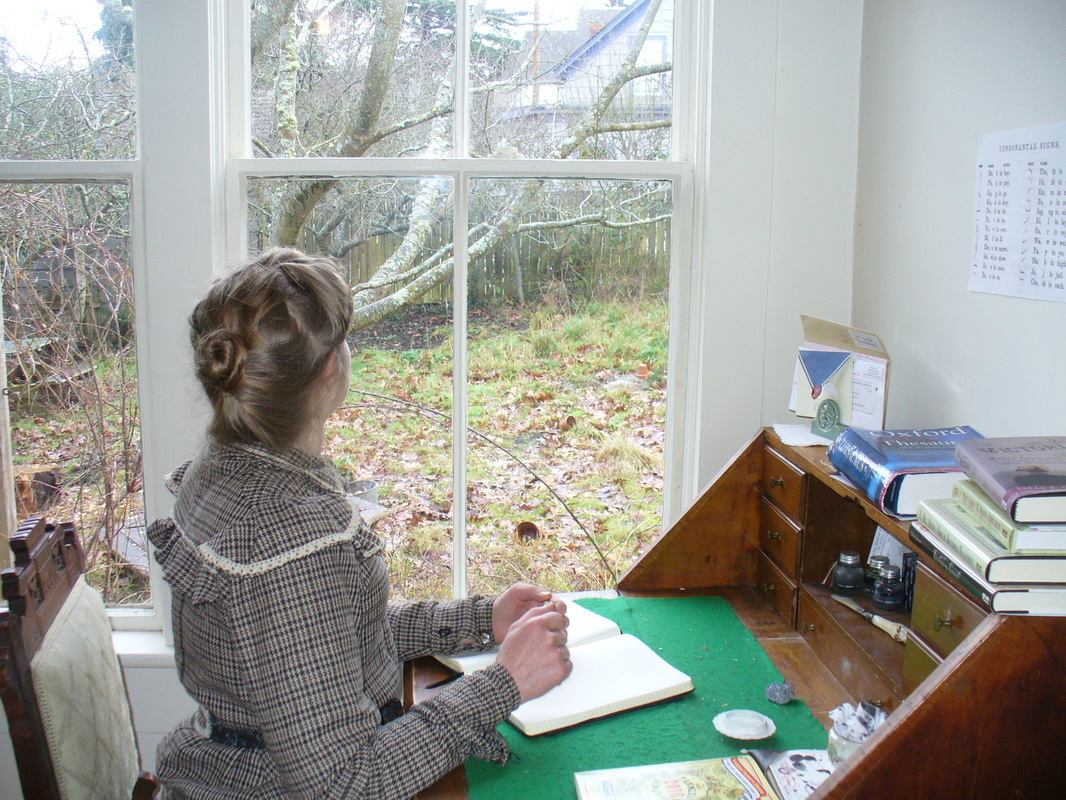All time is cyclical, whether it is examined in the seasons of nature or in the histories of human societies.
January, the month named for the old Roman god who gazed both backwards and forwards, always seems a natural occasion for pondering the cyclical nature of time. When I look at the oak tree outside my window, my first glance shows only bare branches standing out against the winter sky. Yet when I gaze closer and allow my eyes to focus in on details, I see that those branches already support countless tiny buds which will eventually grow into the distinctive leaves of the oak tree. I know that when those leaves emerge, examination under a microscope would find individual differences between them, yet their general forms are so alike that each year it is a very simple matter to recognize that they are all oak leaves, regardless of microscopic differences. Their form grows larger as they reach summer maturity, but its outlines remain unchanged, even when the bold green of summer shifts to autumn flame. Their edges may curl a bit as they wither, and winter winds will send them flying, but even when they lie as skeletons on the ground, still their distinctive oak leaf outlines remain.
Each leaf is different from its neighbors, and also distinct from the leaves of the following year. Yet they are all moistened by the same spring rains, they all grow strong in the same summer sun, and all go through trials and glories like those which have been faced by every other generation of leaves as long as oak trees have stood upon the earth. Some years mold is more likely than drought; sometimes caterpillars pose a bigger threat than gall or blight. When all is said and done the problems pose similar difficulties, but the tree always survives. Meanwhile the seasons continue forever onwards, always back to their beginnings.
Cycles and repetitions in human cultural histories are just as apparent to those who look for them. Everything we do has historical echoes, equivalents throughout the past. I find tremendous comfort in knowing that every challenge humanity faces is something we've already overcome. Whatever confronts us, we always come through—and will continue to do so.
Headlines about terrorists, or natural disasters, or economic woes, prey on fear to sell news stories. The sensational way they are presented convinces many that society is plunging into an abyss from which it will never be redeemed. Yet we have conquered all these perils before, many times.
Accounts of bombings from the nineteenth-century can read disconcertingly like modern headlines. On October 30, 1883, terrorists bombed an underground station in London. On May 30, 1897, they bombed Scotland Yard and St. James Square in London. Time and time again, the world's cities have been shocked by brutal acts, and always they recover. Writing in 1882 about strife in Paris and how the city had been restored to grandeur, author Henry Vizetelly reported, "[A]ll the other edifices destroyed by the fury of the Terrorists have been restored... Those who, in the days of disaster and tribulation, prophesied that the fair city on the banks of the Seine—to-day the gay and beautiful capital of a consolidated Republic—would never regain her past splendour and prestige, forgot that beneath the bark, with full-spread sail, forming the city's escutcheon, there figures the appropriate motto—"FLUCTUAT NEC MERGITUR."" This motto, "tossed by the waves but doesn't sink," could well be applied to all human communities.
In 2005 Hurricane Katrina left a major impression on American memories, with an estimated 1,833 people dead. As tragic as it was, the storm was not unprecedented. The Galveston Hurricane of 1900 wiped out an entire city in Texas and killed 8,000 people. The Galveston Hurricane came without warning and was generally seen as a very sad act of nature. Going back just a few years earlier to 1889, we find the same political finger-pointing that characterized Katrina's endgame when we examine the aftermath of the Johnstown flood. The massive failure of a dam holding twenty million gallons of water sent a wave forty feet high crashing into the city of Johnstown, Pennsylvania. 2,209 human lives were wiped out in the Johnstown tragedy, including ninety-nine entire families and 396 children. The entire nation mourned, and many blamed the loss of every single life on the dam's botched engineering.
In economics, the recent Great Recession seems like an ongoing echo of every other financial crisis, and has poignant commonalities with the economic struggles of the 1890s. People trusted corporations with their money —and their dreams. Promises were made —then broken when the bubble burst. It wasn't just a question of fortunes being lost, but the meager savings of common people who had earned every penny through hard work. They saw the fiscal representation of all that work vanish into nothing, and their dreams were uprooted when they lost their homes. A few generations later, it all happened again.
In spite of all these similarities, one major difference exists betwen the late Victorian era and our own: our outlook as we face our trials. Pessimism is trendy at the moment, but at the end of the nineteenth-century optimism was the order of the day.
"A banished trouble soon starves. By directing attention to uneasy feelings slight pain is nursed into a hard ache... Some there are to turn over and over a grief or misfortune as a ruminant chews its cud. They find a real enjoyment in complaints just as some are fond of attending funerals... and so keep up a morbid, miserable iteration that fixes an image in the mind which ought to be forever banished... Refuse to dwell among shadows when there is so much sunshine in the world" —Poole, Hester M. Good Housekeeping, July 21, 1888. p. 121.
We all have the capacity to regain that Victorian optimism and bask in its sunshine. It is not easy to banish troubles, but the times when it is hardest to drive away our woes are exactly the times it is most necessary to do so. Whatever our troubles, people very like ourselves have battled them before—and won. Remembering this helps us likewise cast off our difficulties.
A cynic might ask, "So why do we keep encountering the same problems over and over again, if we can indeed overcome them?"
The answer is simple: we are still human.
Years ago, an old man on a bus told me something that lodged firmly in my memory: "People are people," he told me. "—No matter where you go."
I would say that a corollary is equally true: people are people, no matter when you go.
Just like those leaves on my oak tree, which (regardless of personal distinctions) always have a form in common which marks their species, so too are there basic commonalities in human nature. We all dream —and always have. We all cry —and always will. Do not lament that our species will never outgrow heartache: the natural complement of this idea is that we will always maintain our capacity for love.
Acorns inevitably grow into oak trees: they never become willows or sunflowers. With the seeds of all our ancestors' passions within us, is it any wonder we share their challenges?
A tree records its successes and failures in the thickness of growth rings within its wood; humans have found ways to record far more vivid details of ourselves. By studying history, we can recognize its echoes in the present, and be guided by them as we move into the future. At the same time, we can rejoice in recognizing the humanity and triumphs of people of the past.







 RSS Feed
RSS Feed